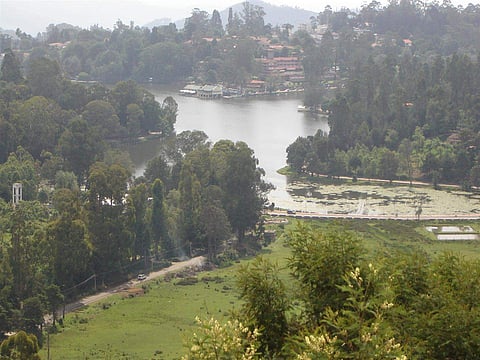

NEW DELHI: 'Heavy Metal: How a Global Corporation Poisoned Kodaikanal', an investigative account of India's greatest mercury poisoning catastrophe in Tamil Nadu's Kodaikanal, will hit the stands on Friday, announced publishing house PanMacmillan India.
Written by journalist-author Ameer Shahul, the book is described as "a terrifying account of a global corporation's role in India's greatest mercury poisoning catastrophe".
In 1983, a second-hand mercury thermometer factory was shut down in New York and relocated to the pristine hill station of Kodaikanal.
In 2001, the factory, which was owned and operated by Hindustan Unilever Limited (HUL), was shut down for serious environmental violations.
As evidence of mercury poisoning among workers mounted, the local community -- aided by environmental watchdog Greenpeace and various public-interest organisations -- launched a battle against the multibillion-dollar conglomerate that would last 15 years, culminating in an undisclosed settlement paid to about 600 of its ex-workers.
"I had the opportunity to work for the victims of the Kodaikanal mercury poisoning incident during the very early part of the campaign. My book on the subject captures the many ways in which corporate accountability takes a backseat as corporate negligence comes to rule the day. The book is equally an attempt to sensitise the public about the dangers of heavy metals in our day-to-day lives. The specific case of Kodaikanal is used to illustrate the extent of damage it can cause to our health and in the larger ecosystem," the author said.
A Ministry of Labour committee had in 2011 estimated that 11,204 kg (11.2 tonnes) of mercury could have been dispersed into the air and disposed of as waste from the fever thermometer factory that had been in the limelight for over two decades for allegations of environmental pollution, damage to health, and loss of lives.
Comparing the deleterious effects of the Kodaikanal mercury poisoning case to the 1984 Bhopal Gas Tragedy, the book also makes a detailed assessment of the impacts of mercury dispersal on the local ecosystem, including the vulnerable flora and fauna ranging from the Nilgiri Marten to various endemic plant species.
The book is endorsed by the likes of senior Congress leader Shashi Tharoor, environmentalist Vandana Shiva and former executive director of UN Environment Erik Solheim.
While Tharoor hoped that the "powerful book" would help avoid future disasters, Shiva described the book as "an in-depth account of how corporate greed migrated from the US to India that led to poisoning and untold devastation for people in one of India's most fragile regions".
"Ameer Shahul uses the skills of his two careers with aplomb, combining the passion and know-how of the environmental activist with the intensive research and clear writing of the investigative journalist to bring his tragic story to life," wrote Tharoor in his praise for the book.